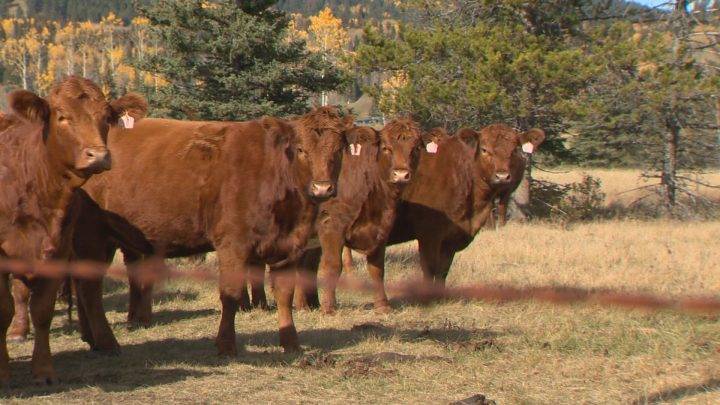Saskatchewan bovine tuberculosis case spurs Canadian Food Inspection Agency investigation

Calving season has just ended on the Crooked Lake Farm southeast of Edmonton, meaning an end to sometimes odd hours through the night to bring new calves into the world
by Brody Langager – Global News
The Canadian Food Inspection Agency is investigating cases of bovine tuberculosis in a cattle herd in Saskatchewan after the United States Department of Agriculture raised the red flag in February.
The USDA said tissue from a cow came back positive for bovine tuberculosis, and it was found that the cow was exported from Saskatchewan in September 2022 and was in a United States feedlot until its slaughter.
The government of Canada said human cases of bovine tuberculosis are very rare. It added that Canada is considered officially free of bovine tuberculosis, but isolated cases may occur.
“A transmissible infection like bovine TB can be devastating to the industry, and so we do have very strong, very rigorous processes in place to make sure this doesn’t get out of hand”“Exposure can occur through the passage of fluids from an infected animal to an open skin sore, extended close contact with an animal with active respiratory tuberculosis (TB) or consuming raw or unpasteurized animal products (such as unpasteurized milk) from an infected animal. Generally, bovine TB does not pose a threat to public health in Canada because of the extremely low prevalence of the disease, the abattoir surveillance and testing programs in place, and practices such as pasteurization of milk,” the government of Canada website read.
The Vaccine and Infectious Disease Organization (VIDO) at the University of Saskatchewan said this is the first case in Canada since an outbreak in 2018 in British Columbia.
It said bovine tuberculosis is caused by a bacterium similar to the one that causes human tuberculosis and is a debilitating chronic disease that can affect cattle and can spread to humans and other animals.
The Canadian Food Inspection Agency (CFIA) said that in May all animals over six months of age in the herd were tested for the disease and two cases were confirmed.
It was noted that during bovine tuberculosis investigations, quarantines and movement restrictions are in place, and testing, humane destruction and disposal are carried out as needed.
Jeffrey Chen, a research scientist at VIDO, said they are awaiting further investigation by the CFIA, and spoke about the importance of testing for things like bovine TB.
“A transmissible infection like bovine TB can be devastating to the industry. And so we do have very strong, very rigorous processes in place to make sure this doesn’t get out of hand,” Chen said.
He said VIDO is working on a vaccine for bovine TB.
“We are in the middle stages. And we anticipate in a year or two we will be able to move this into large-scale trials.”
He said the availability of such a vaccine would be dependent on the regulatory agencies once testing has concluded and approval is given.












